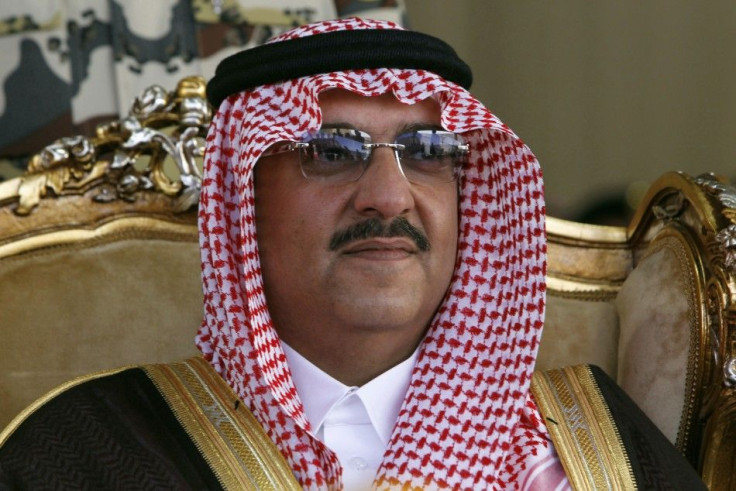Saudi Arabia's New Crown Prince Nayef: 5 Things to Know

Following the death of Saudi Arabia's Prince Sultan bin Abdelaziz Al Saud on Saturday, King Abdullah has named his half-brother Nayef bin Abdul Aziz Al Saud the country's Crown Prince.
Who is Prince Nayef?
Prince Nayef, 78, has been Saudi Arabia's Minister of the Interior since 1975. In this role, Nayef is in charge of the country's religious police force and the Mabahith, the kingdom's internal intelligence organization.
In 2009, he was appointed Second Deputy Premier, a mostly symbolic title that many considered to be a precursor to the crown prince appointment.
Nayef is also a member of the Sudairi Seven, the group of princes who are the sons of King Al Saud and Princes Hussa Ahmad Al-Sudayri. They gained power under King Faisal, the third king of Saudi Arabia. Both King Fahd and Crown Prince Sultan were part of the Sudairi Seven.
Policy:
He is seen as a conservative and authoritarian voice in Saudi Arabia. It is his job to maintain the country's religious moral traditions and the Wahhabi doctrine of Islam, according to the BBC. Nayef was part of the decision to require women to carry ID badges and has strictly enforced the public separation of genders, according to the Financial Times.
He was criticized by the United States following the September 11 attacks in 2001, because many of the perpetrators were Saudi nationals. But in recent years, Nayef has initiated a successful crackdown against al-Qaida, forcing them out of the country and breaking up networks that funded Osama bin Laden.
While the Arab Spring has avoided Saudi Arabia for the most part, Nayef gave Tunisian leader Zine El Abidine Ben Ali refuge in Saudi Arabia and sent troops into Bahrain to help the government stop demonstrations.
Royal Selection:
Nayef was chosen during a secret meeting between King Abdullah and a collection of powerful princes, according to The Telegraph.
After being selected, the news was told to the Allegiance Council, a group made of representatives from each arm of the al-Saud royal family. The council then voted to approve the selection. Prince Nayef was the first crown prince to be selected by this process, which was instituted only a few years ago.
If he so desired, the King could have made up to three crown prince nominations and allowed the council to select who it liked the best. If the council didn't like any of the nominations, it could appoint a different prince, to be chosen from among the sons (and eventually grandsons) of the Saudi Kingdom's founder, King Abdulaziz Ibn Saud.
Duties:
As crown prince, Nayef is the heir to Saudi throne, and will take over as king if Abdullah dies. Aside from that, he doesn't have many duties aside from his role as Interior Minister.
Additionally, Nayef can assume power if Abdullah is deemed unfit to rule. When, in 1995, King Fahd suffered from a stroke, Abdullah took over his official duties, but his coronation wasn't until after Fahd's death ten years later.
The Line of Kings:
Unlike many monarchies, the title of king is not passed from father to son, but among the brothers of the country's first modern monarch. Since King Ibn Saud died in 1953, five of his sons have served as the monarch of Saudi Arabia. Nineteen of Ibn Saud's 45 sons are still alive.
Prince Sultan, who was around 86 years old, died while under going medical treatment in New York. The death came as no surprise to the royal family, who were likely well prepared to select Prince Nayef months before the Allegiance Council was held.
The Crown Prince had been deteriorating for some time so they haven't been caught by surprise, Saudi columnist Hossein Shobokshi told Reuters. We had been waiting for this development.
© Copyright IBTimes 2024. All rights reserved.





















